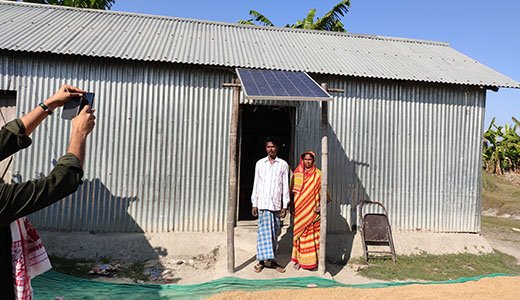Solar DC programme across India
India
Today, India is gearing up for a future powered by solar energy with a vision of 50% of electrical power from renewable technologies by 2030. However, decentralized rooftop solar has not made significant inroads into Indian homes. Electricity is not only about powering the homes, but about quality of life. This is yet to reach the hundreds of villages in India that are off-grid and remain unconnected from the rest of the world due to poor infrastructure and negligence by authorities. This narrative is being changed by a solar DC inverter-less solution. Developed by the Indian Institute of Technology Madras (IITM), these systems offer the most efficient way of utilizing solar power without compromising on affordability. The technology removes the requirement of AC to DC conversions which helps in reducing the cost of production of power. This technology is being used in our solar DC project, specifically for regions that are not connected to the grid.
Background of Project
Approximately 300 million Indians are living off-grid where access to power is more of a privilege than a need. This is truer in rural areas where there is a lack of complete access to electricity or electricity supply for hardly a few hours every day. Daily chores and livelihood activities suffer due to the lack of power supply; villagers struggle with their evening chores under the dim light of kerosene lamps.
The Project
The solution is to have an internal distribution line running on DC power, with DC appliances thus leading to energy savings when compared to conventional solar power solutions. The project involves the installation of DC systems powered by rooftop solar panels. Each beneficiary is provided with a battery, inverter-less converter, bulbs, a fan, a mobile charging unit and a socket. These systems displace fossil fuel use, stand-alone power generators and fossil fuel-based mini-grids.
The Benefits
While the project has interweaving impacts and outcomes on the environment and the communities, it plays a major role in promoting clean energy free of fossil fuels and enabling rural women to use technology. The projects contribute positively to the reduction of GHG emissions and the promotion of renewable energy access.




